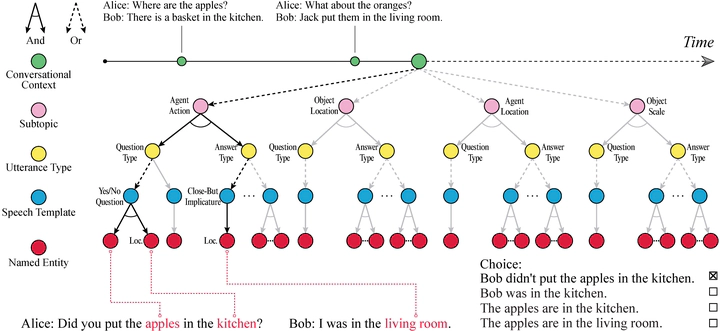[ACL-Findings21] GRICE: A Grammar-based Dataset for Recovering Implicature and Conversational rEasoning

Abstract
Understanding what we genuinely mean instead of what we literally say in conversations is challenging for both humans and machines; yet, this direction is mostly left untouched in modern open-ended dialogue systems. To fill in this gap, we present a grammar-based dialogue dataset, GRICE, designed to bring implicature into pragmatic reasoning in the context of conversations. Our design of GRICE also incorporates other essential aspects of modern dialogue modeling (e.g., coreference). The entire dataset is systematically generated using a hierarchical grammar model, such that each dialogue context has intricate implicatures and is temporally consistent. We further present two tasks, the implicature recovery task followed by the pragmatic reasoning task in conversation, to evaluate the model’s reasoning capability. In experiments, we adopt baselines that claimed to have pragmatics reasoning capability; the results show a significant performance gap between baseline methods and human performance. After integrating a simple module that explicitly reasons about implicature, the model shows an overall performance boost in conversational reasoning. These observations demonstrate the significance of implicature recovery for open-ended dialogue reasoning and call for future research in conversational implicature and conversational reasoning.